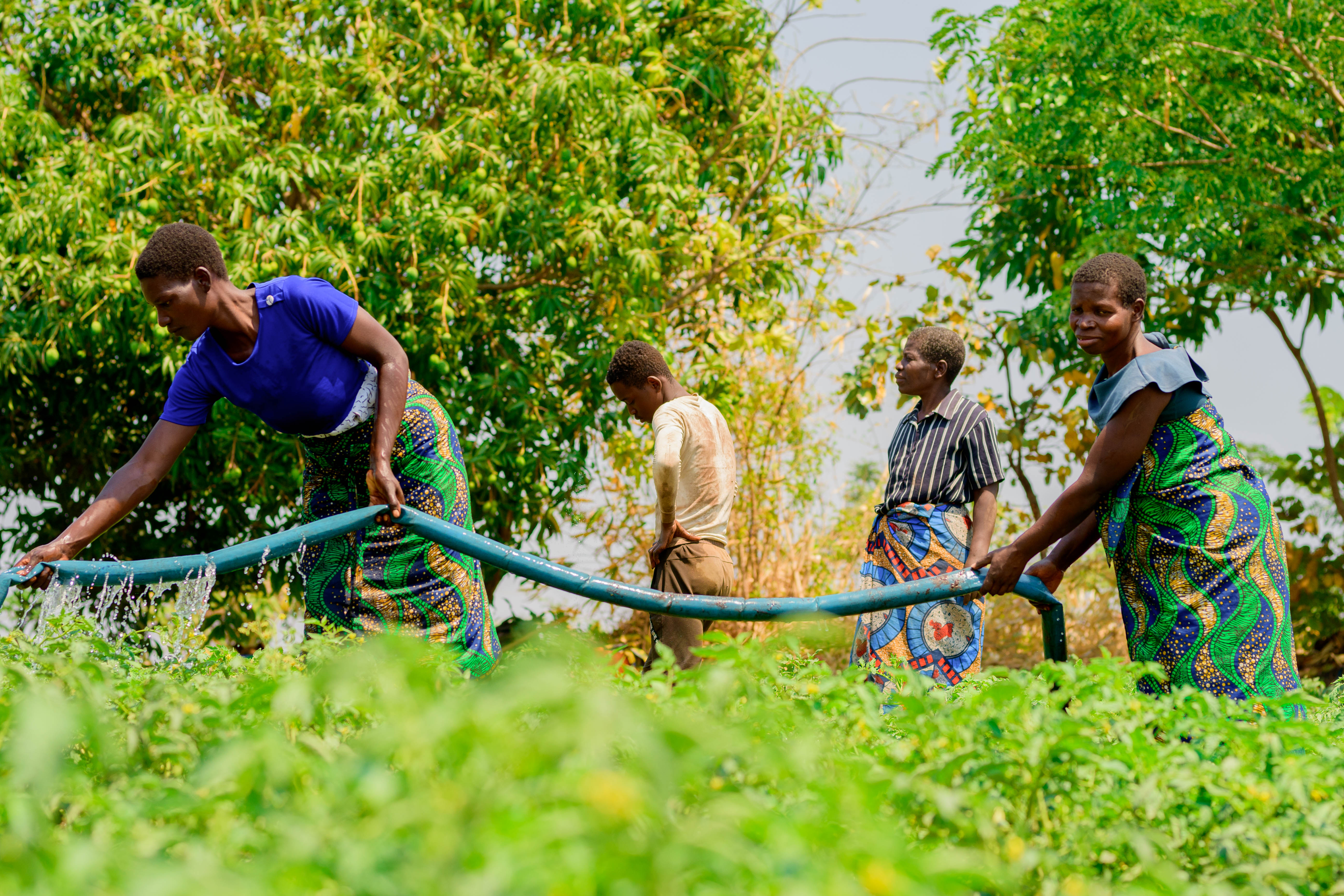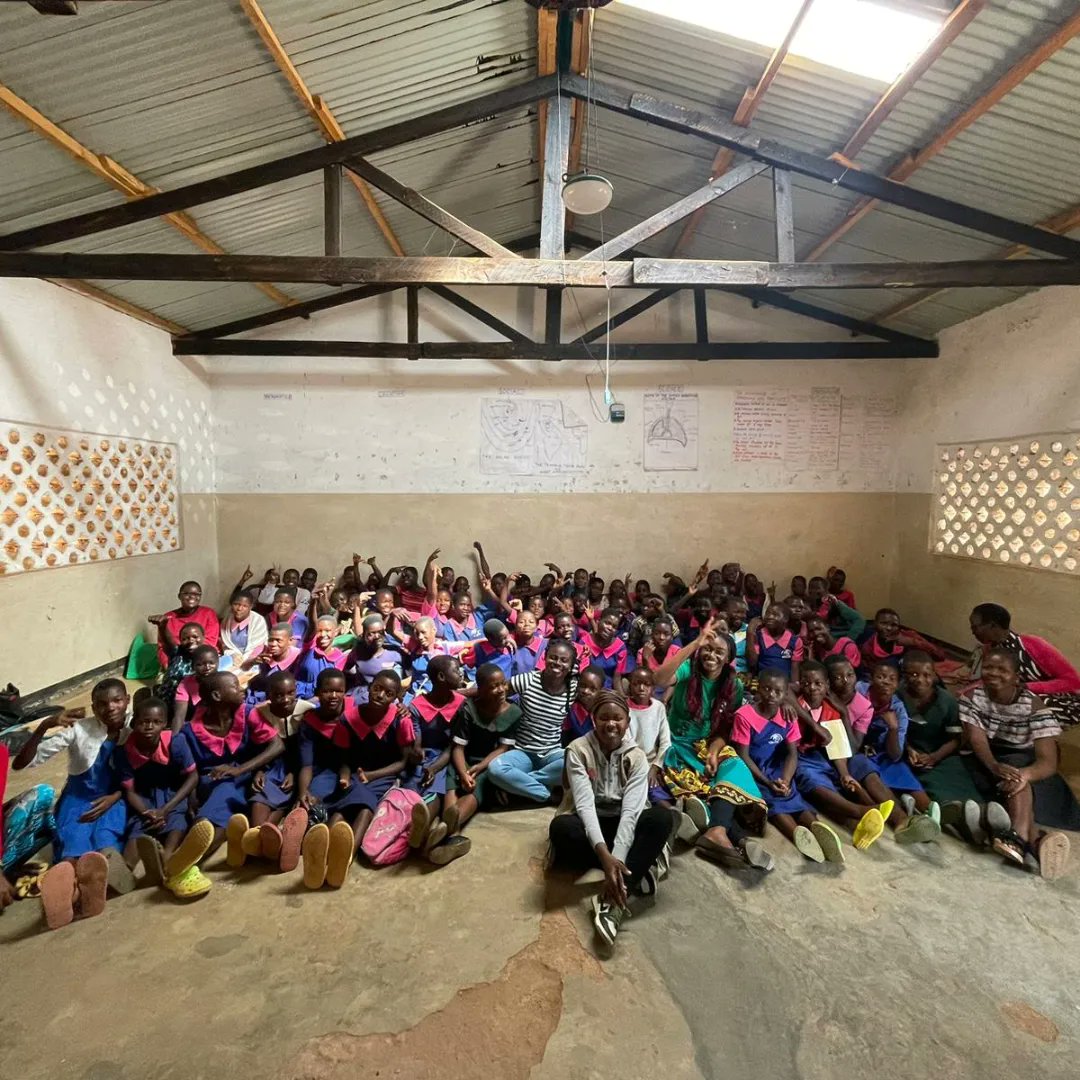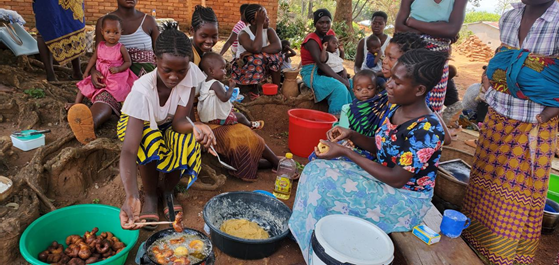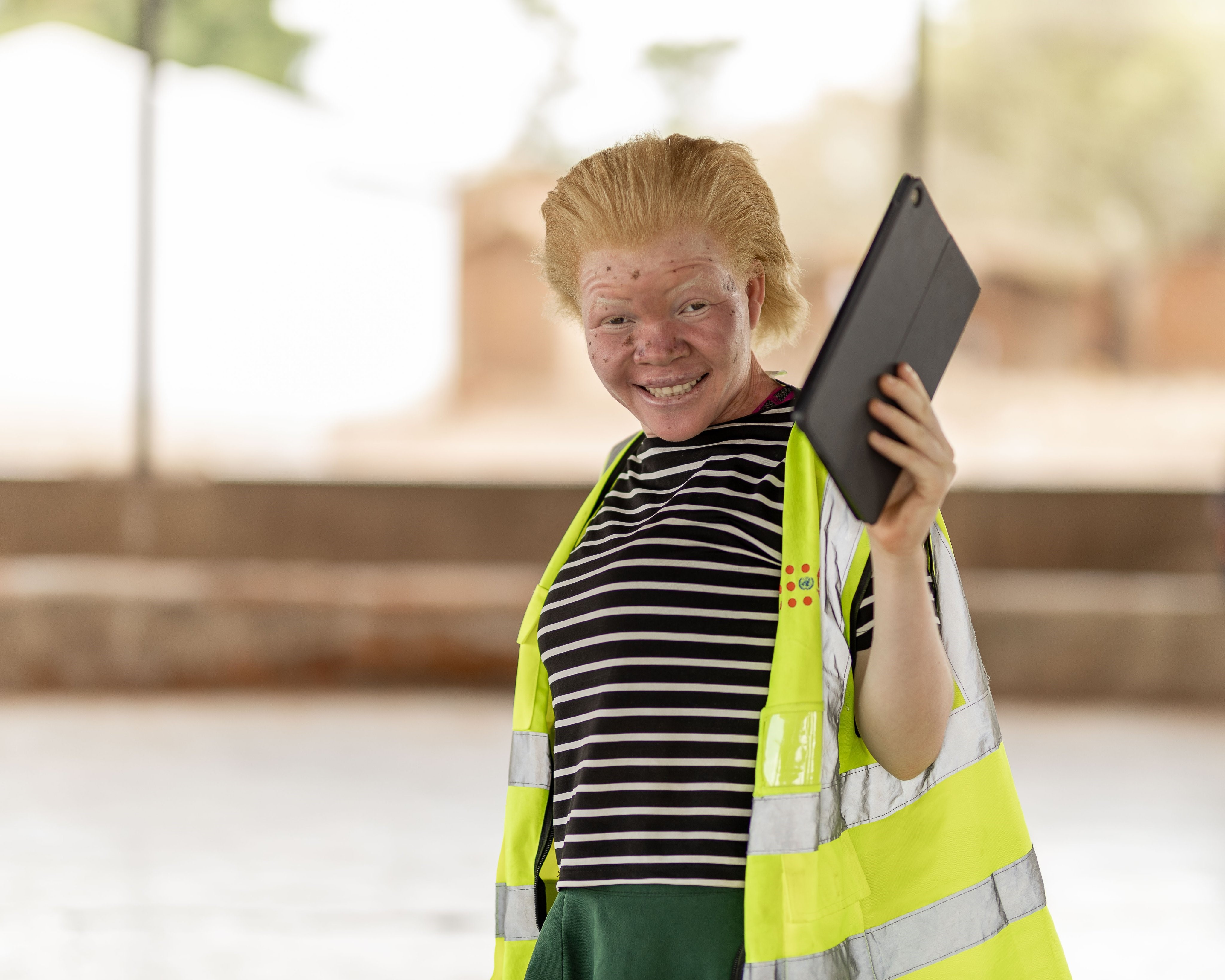
Cyclone Freddy's devastating impact on Blantyre's TA Kuntanja left a trail of destruction, displacing thousands and shattering livelihoods. Amidst the chaos, a group of 10 economically vulnerable women refused to give up. With the support of the Women's Resilience Disaster (WRD) project funded by Australian Aid through UN Women being implemented by Christian Aid in partnership with FOCESE, they embarked on a remarkable journey, transforming their lives and community through irrigation and entrepreneurship. In the aftermath of Cyclone Freddy, these women faced different challenges: lost homes, destroyed crops, and dwindling hope. However, through the WRD project, they discovered an opportunity to rebuild and thrive. With training and resources, they ventured in irrigation farming of tomatoes. The women did not wait for the project to give them seeds but made it their own initiative to go to the chief and ask for a piece of land near a water source, contributed little to buy a starter pack of seeds while they wait for more assistance. With the proactive nature of the group, the women planted tomatoes in the land and used buckets to fetch water for watering the tomatoes. But this was a challenge, as it was labor intensive and consuming most of the time that the women would use to do other things at home, the WRD project saw the challenges and provided a solar power pump to help ease their labor. With the pump they have been able to water their tomatoes quickly than before leaving them more time to focus on other things. Without wanting the remaining piece of land to go to waste as their pack of seeds could only cover so much, the WRD provided not only tomato seeds but also okra, onions and eggplants to help diversification of the plants they were growing. Keeping in mind the financial muscle of the women they were also provided with fertilizer and pesticides to help kick start them. “We are very grateful for the support that WRD project has rendered to us, and we are glad that we did not wait for the seeds to be given to us but we started planting on our own. We believe that such initiative has shown them that we are very serious about the knowledge that they gave us and we are putting it to us. We are taking ownership of this project.” From the piece of land, the women have eight thousand stalks of tomatoes with an estimated selling price of five hundred Malawi Kwacha which will give them four million Malawi Kwacha when the sell according to their projections. “As a group we have discussed that from the money we are to realize from this farming season, we will set aside one million Malawi Kwacha to help in the next growing season and then the remaining three million Malawi Kwacha will be distributed amongst ourselves.” The Maliya Women's Irrigation scheme is a testament to the power of collective action, resilience, and determination. Through the WRD project, these women are looking forward to having their lives changed, overcoming seemingly difficult challenges. As they strive to realize four million Kwacha in annual revenue, their story serves as a beacon of hope for economically vulnerable women everywhere. The Women's Resilience to Disaster project aims to empower economically vulnerable women in Malawi, providing training, resources, and support to build resilient communities.


